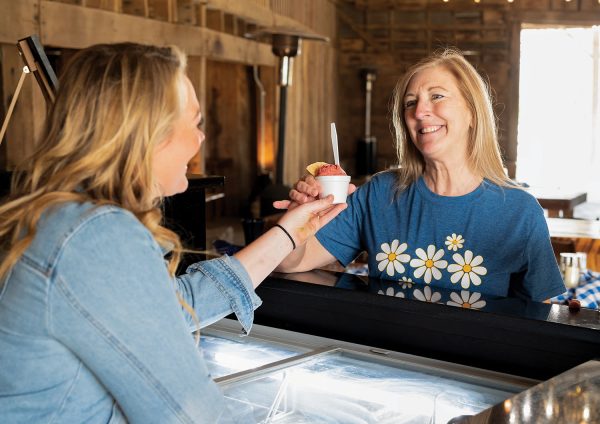COLUMN: Listening knocks down language barriers
March 1, 2011
CAPE TOWN, South Africa – During the six weeks of my Semester at Sea experience, I have created for myself the term pseudo-conversations: exchanges with people with whom I have no common languages.
These conversations go nowhere and accomplish nothing really useful, yet are valuable all the same in what they teach me about universal human mannerisms.
We all need to be heard, and we will try to be heard to communicate, no matter what the barriers.
In Brazil, I insisted on speaking Spanish even though I knew Brazilians would probably not comprehend. I knew I wasn’t making sense to anyone, but I couldn’t stop myself. In return, they insisted on speaking rapidly in Portuguese with flourishing hand motions, even though they had to have known I wouldn’t understand.
I gained a better understanding of something that is the same in every culture (those I have visited, at least).
When there are language barriers, we will exercise and exhaust every method of expressing ourselves and our wishes and stories. Many times in port, I will try to explain something in English, then Spanish (if at all applicable to that country), then in hand motions.
Usually these exchanges end with a bewildered shrug, a smile and a handshake, sometimes a “thanks anyway.”
I think “thank you,” a simple wave and hello are the most underrated gestures in the world.
I rode a bicycle through the township of Khayelitsha in Cape Town and found that simply waving and smiling at people does wonders. Greeting people instead of just staring straight ahead transforms you from a random and possibly unwelcome Westerner into a guest, someone who is there not to gawk but to learn.
I found the same communal spirit in a small village in the Ghanaian countryside called Atonkwa.
My host family took me to a free clinic in their village for the physically and mentally disabled. The oldest of my three host sisters, Priscilla, told me proudly that they take care of their people in Atonkwa.
I was left to explore on my own for some time, and I went into a small room that was dark and musty. In a corner sat a shriveled old woman with an arm missing. She grasped my hand and told me what might have been her life story. I will never know. I didn’t understand a word she said as she spoke only Twi, the local language.
I understood only her face and tone, and that was enough.
In the end my host sisters translated a little for me, and the old woman thanked me profusely for taking the time to visit and speak with her, although I did little actual speaking.
I realized later that it did not matter that I could not understand her, that it was therapeutic for her simply to have someone to listen to. I wondered how often the woman had visitors, how many days she spent in that shadowy corner and how many there are like her in the world.
Did I take the time to listen to this woman because she was unfamiliar and exotic to me or because she was a fellow human being? Why do I ignore the same kind of people at home in Kentucky while I find them so interesting overseas? In a country as ridden with past and present racism as South Africa, I have to wonder about my own discriminations.



















![Megan Inman of Tennessee cries after embracing Drag performer and transgender advocate Jasmine St. James at the 9th Annual WKU Housing and Residence Life Drag Show at Knicely Conference Center on April 4, 2024. “[The community] was so warm and welcoming when I came out, if it wasn’t for the queens I wouldn’t be here,” Inman said.](https://wkuherald.com/wp-content/uploads/2024/04/smith_von_drag_3-600x419.jpg)





